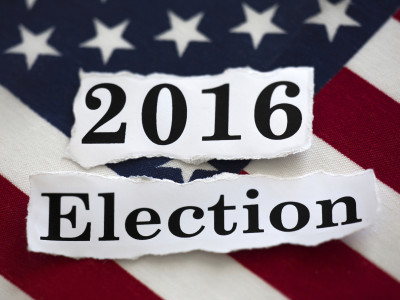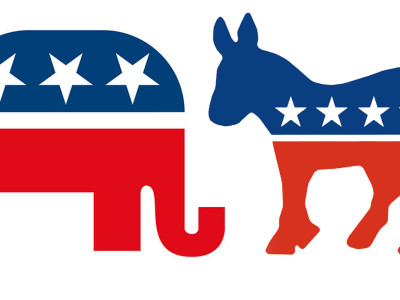The Clean Power Plan — Low Cost, High Benefits
Despite claims by industry and conservatives, the CPP's costs are completely manageable.
The Supreme Court's stay of EPA's Clean Power Plan was a surprise, and a questionable action on many grounds. It now seems clear that the stay -- along with much of the political fuss about the CPP -- was based on very questionable economics. In terms of the stay, a team of economists at Resources for the Future has done an extensive investigation and concluded that the claim of irreparable injury was bogus: "Industry groups stated the plan will pose large “irr...
CONTINUE READINGThe End-game for Diablo Canyon?
A landmark agreement supports the closure of a controversial nuclear plant.
Today’s announcement that the Pacific Gas & Electric Company (PG&E) has reached an agreement with several environmental and labor groups to plan for the eventual shutdown of the Diablo Canyon Nuclear Plant is a stunning development, when viewed in an historical perspective. PG&E has agreed not to seek new licenses for its power plant that might otherwise have allowed for operation beyond the current license expirations for the two units in 2024 and 2025. ...
CONTINUE READINGLet Us Now Praise Famous Plants
Taking environmental law education outdoors
Lawyers spend their lives among tree slices (using 20,000-100,00 sheets of paper per attorney annually), but distressingly little time among whole trees. This became evident when I hauled a class of bemused clinical environmental law students up a wooded slope near the UC Berkeley campus this spring for a lesson spanning ecology, agency jurisdiction, and oral presentation techniques. Why, their facial expressions and inappropriate footwear seemed to ask, would an envir...
CONTINUE READINGRonald Reagan – Environmentalist Governor
Reagan's record in California included major environmental achievements.
It may surprise you to learn this -- it certainly surprised me. But Ronald Reagan has been called “the most environmental governor in California history — protecting wild rivers from dams, preserving a Sierra wilderness by blocking highway builders, creating an air resources board that led to the nation's first auto smog controls.” This may be an exaggeration, but there were some major environmental achievements. Consider this LA Times account of Reagan’s effort ...
CONTINUE READINGThe Irony of a Developing Nation’s Climate Agenda
The challenge of developing and decarbonizing at the same time
Mexico has been busy. Or at least, its energy and environmental ministers have been. Over the last several years, Mexico has held its first auction for renewable energy contracts, opened its energy market to private competitors, and increased its renewable energy capacity by more than thirty times the level in 2008. At the same time, the Environment Ministry recently issued a temporary emergency regulation after the air pollution index in Mexico city surpassed 150, consi...
CONTINUE READINGStatutory Standing After the Spokeo Decision
A non-environmental case opens the door to new arguments about standing.
One of the recurring questions in standing law is the extent to which Congress can change the application of the standing doctrine. A recent Supreme Court opinion in a non-environmental case sheds some light – not a lot, but some – on this recurring question. The Court has made it clear that there is a constitutional core of the doctrine with three elements: a concrete injury in fact, a causal link between the injury and the defendant’s conduct, and a reasonable...
CONTINUE READINGGaming Out Environmental Law: 2017-2019
The heavens or the abyss? Or somewhere in between?
What happens after November? A lot depends on who's the next President, but the congressional elections also matter. Basically, a Trump victory would mean at least a rollback of much of Obama's environmental legacy, and perhaps passage of the current House deregulatory agenda into law. A Clinton victory would be likely to preserve or strengthen the Obama legacy, and could conceivably lead to new climate legislation. Of the two extreme outcomes, enactment of the Ho...
CONTINUE READINGTrump, Clinton, and the Environment
Your Handy Guide to the Differences
Here’s a handy chart comparing Trump and Clinton on environmental and energy issues. I’ve assembled the relevant statements by the candidates below the summary table. Issue Clinton Trump Is climate change real? Yes, an urgent threat. No, it’s a hoax. Support Clean Power Plan? Yes. No. Support Keystone XL pipeline? No. Yes. Drill in Arctic? No. Yes. Support Paris Agreement? Yes. No. F...
CONTINUE READINGTrump’s 2009 Call for Serious Climate Action
No, I'm not making this up.
On the eve of the Copenhagen conference, business leaders published an open letter demanding urgent climate action. The letter was signed by Donald Trump along with Donald Jr., Ivanka, and Eric. Here's some of the language of the letter: "We support your effort to ensure meaningful and effective measures to control climate change, an immediate challenge facing the United States and the world today. Please don’t postpone the earth. If we fail to act now, it is scie...
CONTINUE READINGThe Road to Improved Compliance
Enforcement of environmental laws is spotty. But there are ways to change that.I
As I wrote earlier this week, environmental enforcement is not nearly as effective as it should be. EPA and others have been working on finding creative ways of obtaining compliance, often with the help of new technology. One aspect of enforcement that has become clear is the need to focus on small, dispersed sources that may cumulatively cause major problems. EPA has focused its past efforts on the largest non-complying facilities. But EPA has found serious non...
CONTINUE READING











